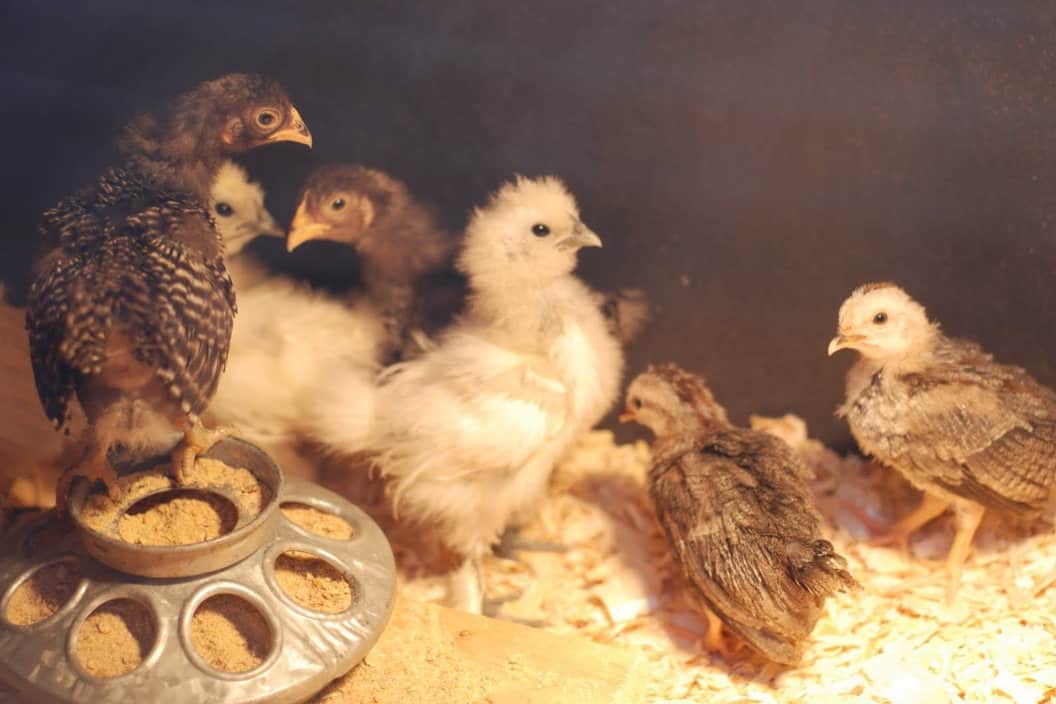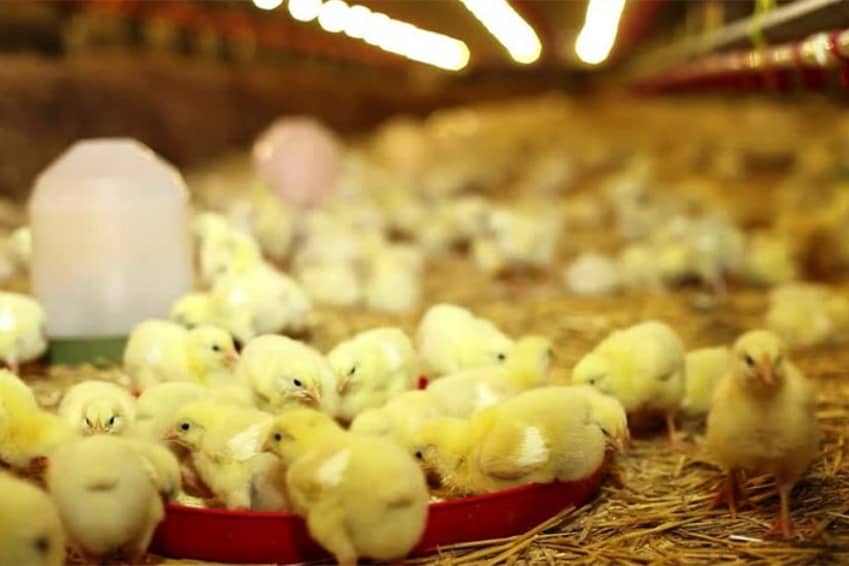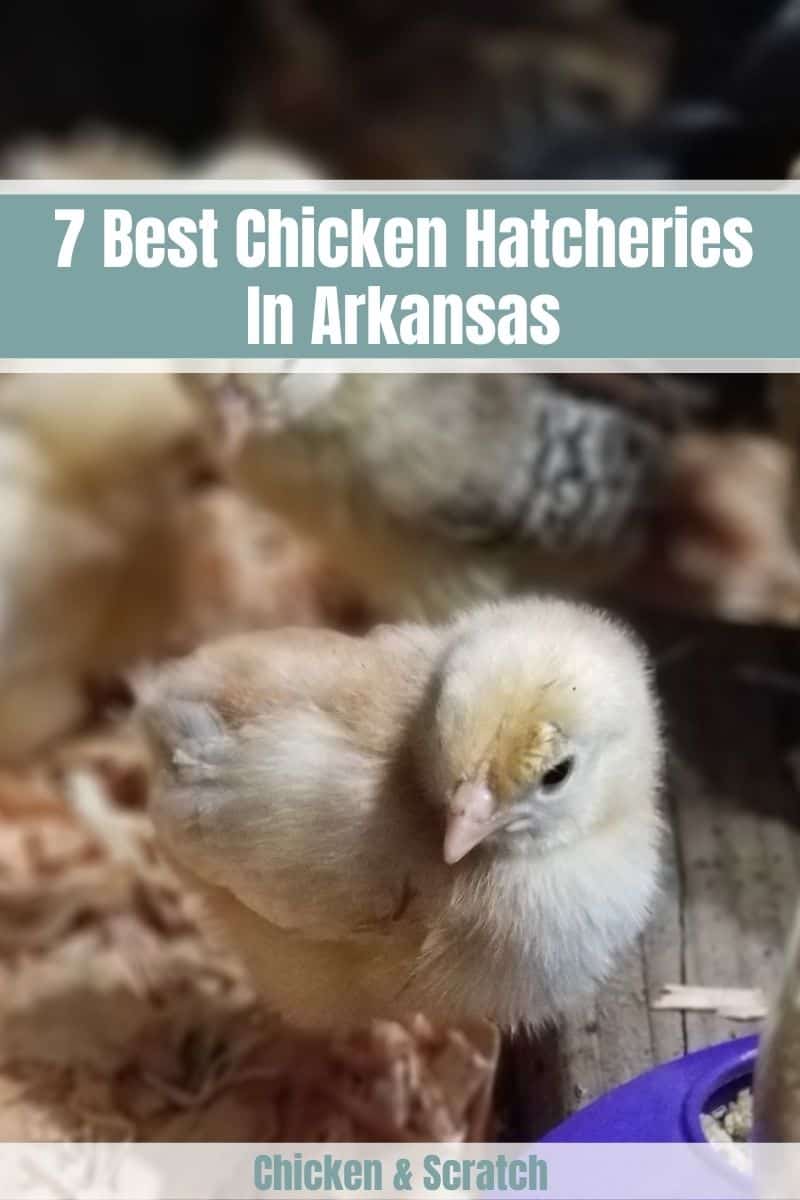Have you ever wondered how to choose the best chicken in town?
Whether you’re looking for chicken for consumption or starting your little farm, you would want to pick one that suits you best. Chicken farming might be one of the industries you would want to pursue! Here’s our rundown on the chicken hatcheries in Arkansas that you can consider as your prospect.
Here are the Top 7 Hatcheries in Arkansas.
1. George’s Hatchery
Formerly known as Ozark Mountain Poultry, George’s acquired Ozark Mountain Poultry in 2018. With their combined assets, the company gauged to provide consumers with more options by providing antibiotic-free and non-GMO poultry products at a reasonable price. In compliance with federal legislation, George’s does not use hormones or steroids in the production of chickens.
George’s is dedicated to animal welfare and follows the National Chicken Council’s (NCC) animal welfare requirements for broiler chickens. The purpose of these recommendations is to ensure that broiler chickens are adequately cared for and treated with respect throughout their stay.
- Breeds: Pullets, Breeders, and Broilers
- NPIP certified: Yes
- Address: 1409 S Thompson St, Springdale, AR 72764
2. Peco Foods Poultry Hatchery
Peco has been ranked as the 8th largest poultry producer in the US. Two of its four hatcheries are based in Batesville and Pocahontas, Arkansas, with its corporate office located in Tuscaloosa, Alabama. It has been family-owned for three generations already and has been in the poultry business for over 80 years.
- Breeds: Rhode Island Red, Leghorn, Plymouth Rock, Orpington, Brahma
- NPIP certified: Yes
- Address: 1600 White Dr, Batesville, AR 72501
- Contact: 870-569-7511
3. Foster Farms Glenwood Hatchery
Like the rest of their Simply Raised peers, Foster Farms Organic hens are certified humane by the American Humane Association and are never given antibiotics. The organic hens and turkeys, on the other hand, are fed entirely free range on a delicious diet of 100% organic vegetarian feed that is free of genetically modified substances.
- Breeds: Not Stated
- NPIP certified: Yes
- Address: 14 Industial Park Ln, Glenwood, AR 71943
- Contact: 870-356-2162
4. Wayne Farms Hatchery
With yearly sales of over $2 billion, Wayne Farms LLC is the seventh-largest vertically integrated chicken producer in the United States. Wayne Farms, a subsidiary of Continental Grain Company, owns and manages 11 fresh and further-processed facilities in the Southeast, producing over 2.6 billion pounds of chicken products annually and employing over 9,000 people.
The facility offers a wide range of fresh poultry products and packaged cuts catered to their customers’ satisfaction. The company has its local hatchery facility in Danville, Arkansas, while the corporate office is located in Oakwood, Georgia.
- Breeds: Not Stated (Pullets, other Breeder Chicks, and Rooster)
- NPIP certified: Yes
- Address: 2001 E 8th St, Danville, AR 72833
- Contact: 479-495-4467
5. Cobb-Vantress Inc.
Cobb is the world’s oldest pedigree broiler breeding firm, founded in 1916. The company has been committed to genetic research and responsible technology usage for more than a century and will improve the chicken business in the following years.
In its licensed poultry health laboratories, the company has employed full-time poultry veterinarians, quality assurance employees, vaccination crews, and microbiologists to ensure product quality, health, and the welfare of the flocks.
- Breeds: Broiler
- NPIP certified: Yes
- Address: 1140 Beechwood Ave, Fayetteville, AR 72701
- Contact: 479-524-3166
6. Southeast Poultry Inc.
In Northwest Arkansas, Southeast Poultry is a privately operated poultry processing business. The production is on par with many of the larger manufacturing plants in the area, despite the modest facilities and number of employees.
Southeast Poultry began in 2009 with a small team and a few automated dark meat deboning machines. Soon after, product demand surged, prompting an increase in manpower and the addition of new machinery and the processing of front half white meat.
- Breeds: Not Stated
- NPIP certified: Not Stated
- Address: 2200 Town W Dr, Rogers, AR 72756
- Contact: 479-636-600
7. England Farms Inc.
England Farms specializes in producing high-quality, disease-free broiler hatching eggs from the most popular breeds. Pullet and breeding flocks, grading and packaging facilities, and distribution and transport operations are all owned and managed by the farm itself. This utterly integrated method provides reliable supply and outstanding hatchability for its numerous long-standing customers.
They ensure consistent, on-time direct delivery of orders across the United States and Canada by maintaining its fleet of sophisticated, refrigerated tractor-trailers. They also carry hatching eggs to distribution hubs around the United States for prompt air transportation to international destinations.
- Breeds: Broilers
- NPIP certified: Yes
- Address: 660 Niven Road Rison, AR 71665
- Contact: 410-658-9724
What to Look for When Buying Chickens in Arkansas

Have you had terrible luck in the past, or do you simply lack a frame of reference? There are a few specific things to consider and check for when buying a new chicken. So, when buying poultry, here’s what to look for.
A few pointers
You’ve probably already begun your poultry experience with a chicken, but you might still be curious about what to look for when purchasing a new bird for your flock. You’ll quickly learn that the best chicks are almost exclusively obtained through your hard work and careful breeding.
While a breeder is unquestionably the greatest place to go hen or rooster shopping, you’ll almost always come across a few good-but-not-great birds.
Check the combs and wattles to see if they’re lovely and red in terms of physical appearance. Finding a comb or wattle that appears rather drab in color usually suggests that something is off, as they should be saturated with blood and bright red.
The feathers are usually the first indicator of physical health since they should be bright, numerous, and free of noticeable places where they’ve fallen out. You should also look under the feathers and at the skin to see if any parasites are feeding on it.
You might also want to see the environment where the chickens were cared for. Too much humidity can cause various skin diseases among your flock, while too much drop in temperature can also introduce cold and influenza.
Certified Humane Raised and Handled. This is one of the few labels that specify the flocks’ living circumstances and welfare requirements.
Certified Humane birds must meet stringent criteria for animal welfare, including access to healthy feed, participation in natural behaviors, house design, and careful processing. If you purchase a bird with this label, you can rest assured that it has enjoyed a happy life.
The phrase “enhanced” is the most crucial thing to look for on the label. If the packaging contains this, or if the ingredients list contains anything other than chicken or water, put it back. A salt solution or chicken broth is injected into them to plump them up.
This will add up unnecessary salt to your consumption, plus and water will add up to its computed weight. Certified Humane chickens are your best bet if you can afford them. Otherwise, the tastiest alternative is organic, air-chilled chickens.
How they could be raised

Organic certification assesses the implementation and continuing observance of several stringent requirements and practices. The National Organic Program of the United States Department of Agriculture is the most commonly utilized and recognized organic program.
Top-tier organic farmers take a step further by earning the HFAC (Humane Farm Animal Care) accreditation, which enforces humane handling rules at every stage of the process.
Because chicken might be labeled as antibiotic-free or reared without antibiotics, interpret label jargon for antibiotic use.
The USDA requires that the producer follow a withdrawal or waiting period to guarantee that antibiotics are no longer present before labeling chicken as antibiotic-free. Consumers can rest assured that chickens raised without such medications have never been given antibiotics.
The environment is equally important
After processing a chicken, it must be cooled as soon as you can. Some facilities submerge their birds in cold water, which is effective but can dilute their flavor. Air-chilled chicken is cooled by blowing cold air over it, lowering the temperature without adding additional water.
The term “free-range” as regulated by the USDA indicates that the chickens have some degree of outdoor access. It doesn’t mean they’re pasture-raised or let to roam freely—just because the coop has a door doesn’t mean they’ll utilize it! In the end, this term doesn’t reveal anything about the chicken’s life.
Humane Farm Animal Care (HFAC) defines pasture-raised chickens as those that spend most of their time outside but have access to indoor housing at night. They must also have 2.5 acres of open space for every 1,000 birds. The best way to ensure that your farmer follows the guidelines outlined above is to get to know them.
Summary
Before you can breed chickens, you must first determine which breed is best for you. Beginners often become frustrated because they began with the incorrect ones.
Choosing a lovely, healthy chicken is merely the start of a successful farm. To create the best possible flock, you’ll want to breed appropriately, but you’ll need to know what to look for in the beginning.

Joseph Hudson has been raising chickens for over 15 years. In 2018, he completed the Agriculture & Natural Resources program at Mt. San Antonio College. He currently raises over 1400 chickens on his 7.5-hectare farm. He keeps sharing his experience on raising healthy and happy chickens on Chicken Scratch The Foundry.







